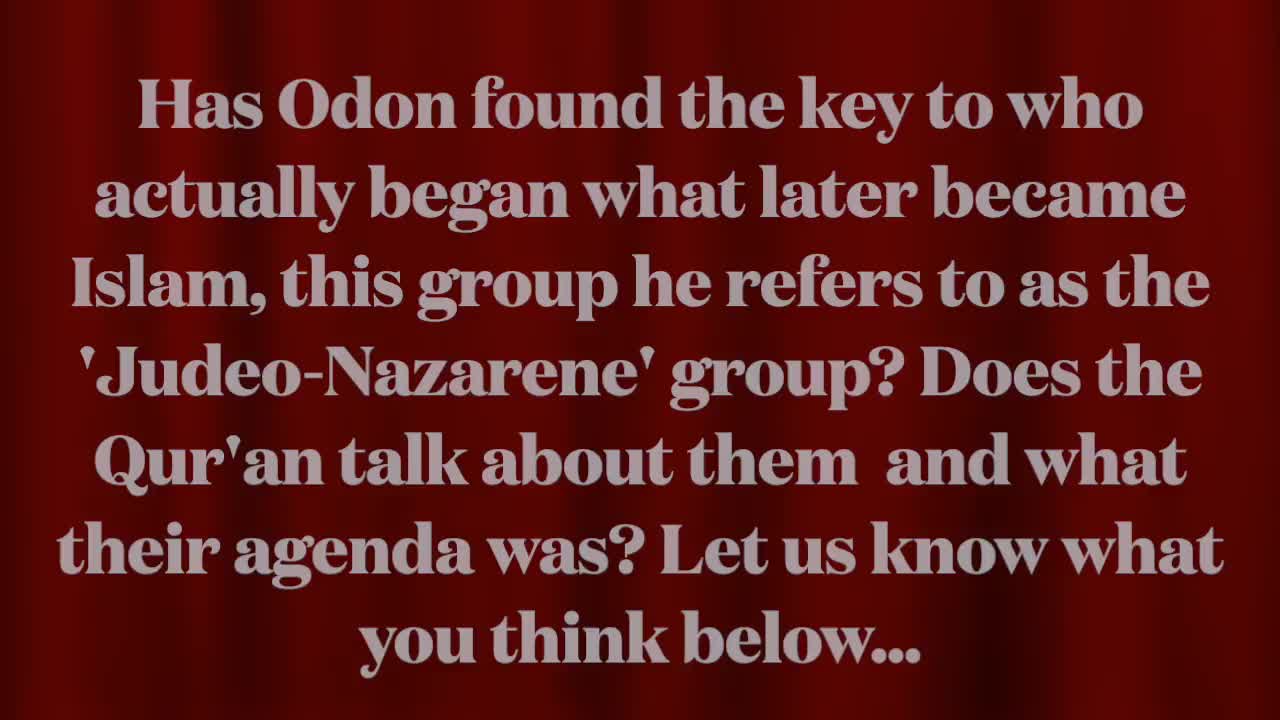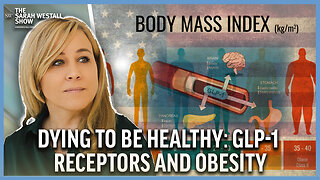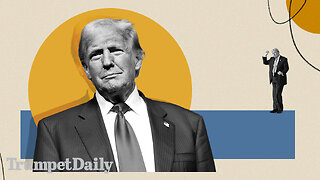Premium Only Content

Has Odon found the group who helped create Islam?
Odon now takes us to who he thinks was the group who helped create the Islam of the 7th-8th centuries.
He begins by looking at the phrase 'Ahl-al-Kitab' which Muslims suggest means 'people of the Book' (Jews, Christians and Muslims, as Islam sees them as ‘having received sacred scriptures’). To understand this phrase, Odon believes we need to look at the context found in the Qur'an (confronting most scholars who believe there is no context since the Quran is too mysterious a book to get anything of historical value from it).
But Odon believes new Islamic studies have changed the game, demanding that we put the Qur'an in its historical context. In the Qur'an the phrase 'ahl-al-Kitab' is found 32 times, suggesting it’s pretty
significant. Furthermore, the word 'kitab' is also found 46 times (apart from ‘Ahl-al-Kitab’) in phrases where it designates a community.
Etymologically, however, the phrase 'ahl-al-Kitab' means a 'people of the scriptures', or the 'writings', or even the 'law' (i.e. the Torah?).
The ‘iconic passage’ for this term is in Surah 4:153-157. Odon notes that these verses are a sort of commentary about these ‘people of the scriptures’, who 'covered' the teachings about God and Jesus, while accusing the Rabbis for claiming that they killed Jesus.
The word 'Kuffar' which Muslims claim are unbelievers, Odon suggests are instead the Rabbinical Jews, who are the 'Coverers', the meaning of the word 'Kuffar'. They ‘covered’ their sacred scriptures using the Talmuds. So, the Qur’an says that their sin was that they rejected Jesus and so covered the prophecies about him in their scriptures.
These passages make a distinction within the 'ahl-al-Kitab' between those who are the ‘good community’ (the Ummah), also,referred to as the 'standing' and 'righteous' community (See Surah 3:113-116, and verse 199).
Yet, not all of the 'ahl-al-Kitab' are good, just a few. They have the good and unaltered sacred text and won't 'sell the verses for a low price' as the 'coverers' do. This is what the preachers of the Quran are about: teaching the ‘Believers’ the difference between the good ‘people of the book’ (this ‘good Ummah’) and the wrong ones (the ‘coverers’).
The ‘Believers’ (the ‘Muminun’) are the audience of the preachers. They are Christianized Arabs, who have left Christianity, rejected the divinity of Jesus, and adopted the new creed and new customs that are being taught by the Qur’anic preachers.
For example, in Surah 5:5, the ‘Believers’ can take women and food from the 'ahl-al-Kitab' (implicitly the ‘good people of the book’ since the bad ones are vividly criticized by the preachers), hence forming an alliance. We see also in Surah 24:3 (also in 2:221) that the ‘Believers’ may not marry any of the 'Associaters' (Christians who associate Jesus with God), which means that those ‘good people of the book’ were not Christians.
Who were then the ‘good people of the book’? What was this ‘right community’? They are what Odon calls ‘The Qur'anic Nazarenes’, a Jewish group who came to deliver the Qur’anic preaching to the Arabs of the early 7th century, either by preaching themselves, or by teaching their Nazarene creed to some Arab preachers (Muhammad?). They would then persuade Christians Arabs to convert to the new ‘Nazarene’ faith, turning them into ‘Believers’ (Muminun).
Their teachings covered a vast array: obeying Jewish dietary laws, forming marriage alliances, and considering the Quranic Nazarenes as close friends (Surah 5:82 shows that the enemies of the Qur'anic Nazarenes are the Jews and Christians, while true believers (Muminun) are the closest to the Nazarenes). But most of all, abiding by a divine covenant defined in Surah 2:125-127, whose goal is to bring the good 'ahl-al-Kitab' (the Quranic Nazarenes) together with the Arabs to conquer Jerusalem, in order to rebuild its Temple. Odon now takes us to who he thinks was the group who helped create the Islam of the 7th-8th centuries.
By the 7th century they wanted to take back Jerusalem in order to trigger the return of the Messiah, who would then bring about the Apocalypse, so they made an alliance with some Christian Arabs to make this happen.
Yet, after Jerusalem was conquered, the Apocalypse never happened, so the Arabs struggled with leader after leader who tried to take on that role themselves, creating autonomous regions, and claiming power 'in the name of God'.
Ibn Zubayr took on this mantle, as did others, but the strongest amongst these 'Messianic figures' was Abd al-Malik, who believed he was God’s caliph (God’s lieutenant) establishing God's Kingdom on earth.
This continued on through the 7th and early 8th centuries until the Abbasids, in the mid-8th century, created the figure of God’s Caliph's successor, a prophet of God named Muhammad the prophet of Islam, and so began what we now have today as modern Islam.
© Pfander Centre for Apologetics - US, 2021
(56,480) Music: "Country Girl" by aleksound, from filmmusic-io
-
 2:02
2:02
WCPO
3 years agoHer desire to help other women has helped create 15,000 jobs
8 -
 2:14
2:14
WGBA
3 years agoThe shortage of nurses has helped create an even more lucrative career
532 -
![Biden: [The American Rescue Plan] has helped create three million jobs](https://1a-1791.com/video/s8/6/2/Q/1/a/2Q1ac.0kob.1.jpg) 1:39
1:39
Sean Hannity
3 years agoBiden: [The American Rescue Plan] has helped create three million jobs
34K429 -
 1:05:19
1:05:19
Sarah Westall
6 hours agoDying to Be Thin: Ozempic & Obesity, Shedding Massive Weight Safely Using GLP-1 Receptors, Dr. Kazer
39.7K11 -
 54:38
54:38
LFA TV
1 day agoThe Resistance Is Gone | Trumpet Daily 12.26.24 7PM EST
38.4K6 -
 58:14
58:14
theDaily302
15 hours agoThe Daily 302- Tim Ballard
36.3K1 -
 13:22
13:22
Stephen Gardner
8 hours ago🔥You'll NEVER Believe what Trump wants NOW!!
86.5K224 -
 54:56
54:56
Digital Social Hour
1 day ago $1.35 earnedDOGE, Deep State, Drones & Charlie Kirk | Donald Trump Jr.
49.9K4 -
 DVR
DVR
The Trish Regan Show
10 hours agoTrump‘s FCC Targets Disney CEO Bob Iger Over ABC News Alleged Misconduct
52.5K35 -
 1:48:19
1:48:19
The Quartering
11 hours agoElon Calls White People Dumb, Vivek Calls American's Lazy & Why Modern Christmas Movies Suck!
138K107